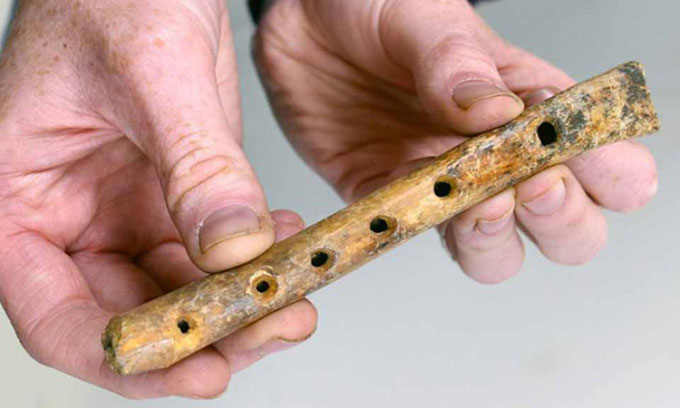A Rare Bone Flute Likely Made from Sheep or Goat Tibia, Buried with Pottery from the 12th – 15th Century.
A team of experts from the British archaeological company Cotswold Archaeology discovered a rare bone flute during the excavation of a 61-hectare site in the town of Herne Bay, Kent, in preparation for a new urban development project, BBC reported on November 20. The excavation, which began in 2021, revealed remnants from the late Bronze Age, Roman period, and Middle Ages, including ditches and pottery.

Rare bone flute discovered in Kent. (Photo: Cotswold Archaeology)
Among the findings, the most notable is a bone flute that is quite well-preserved, found in a Medieval pit. Preliminary assessments suggest it dates back to the 12th – 15th century, as it was located alongside pottery from this period.
The flute is likely made from the tibia of a sheep or goat. It features five finger holes along the top and one thumb hole on the bottom. Archaeologists are conducting further detailed studies on the artifact, but it is likely a fipple flute, an instrument related to the modern recorder. Initially, the bone flute may have had a blowing hole that has since disappeared. Aside from this part, the flute is very well-preserved.
Scientists previously found a similar bone flute along with a coin from the mid-14th century at Keynsham Abbey in Somerset in 1964. To date, they have discovered 118 ancient flutes in various states of preservation across England.
This new discovery in Kent adds a nearly intact specimen to the archaeological record of bone flutes. As Cotswold Archaeology conducts post-excavation assessments, more information regarding the origin and other aspects of the flute will be published.

















































